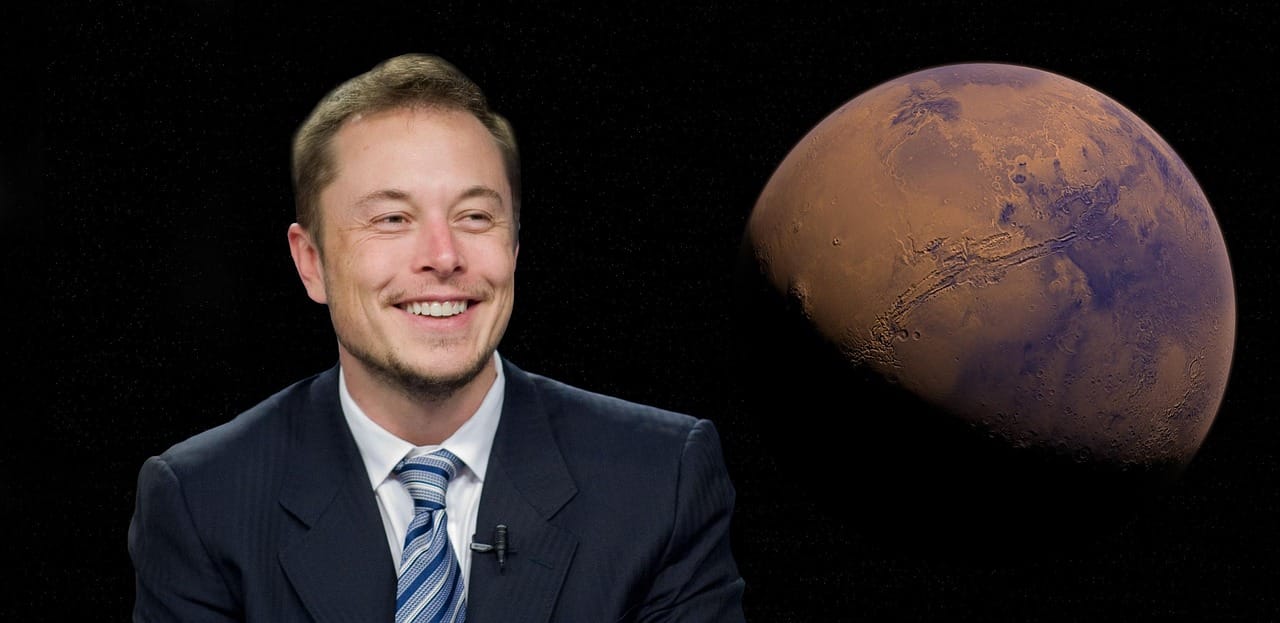The dispute revolves around claims that OpenAI may have engaged in industrial espionage to gain an upper hand in the rapidly evolving AI market. We are now witnessing a crucial moment where two of the most influential players in artificial intelligence are publicly battling it out, a conflict that could reshape the dynamics of the industry.
Key players in this unfolding drama include :
- Elon Musk - CEO of Tesla and SpaceX, who founded xAI as his latest venture into artificial intelligence
- OpenAI - The research organization behind ChatGPT and GPT-4, now valued at over $80 billion
- xAI - Musk's AI company, positioning itself as a direct competitor to OpenAI's dominance
This controversy goes beyond just a simple corporate dispute. The accusations raise important questions about intellectual property protection, ethical competition, and the future of AI innovation. The tech industry is closely watching these allegations because they could set precedents for how AI companies safeguard their most valuable assets - their proprietary algorithms and research methods.
The stakes are incredibly high in this high-profile AI rivalry that threatens to redefine collaboration and competition in the sector.
The Rise of Elon Musk's X.AI
X.AI emerged in July 2023 as Musk's direct response to what he perceived as the AI industry's drift toward censorship and bias. The company's founding mission centers on building AI systems that seek maximum truth and understanding of the universe, positioning itself as an alternative to existing AI models that Musk argues have become politically constrained.
The Elon Musk AI initiatives through X.AI represent a natural extension of his technological philosophy spanning Tesla's autonomous driving systems, Neuralink's brain-computer interfaces, and SpaceX's ambitious space exploration goals. You can see how X.AI fits seamlessly into this ecosystem - creating an AI foundation that could potentially enhance decision-making across all his ventures while maintaining his characteristic emphasis on pushing technological boundaries.
Key Innovations and Projects
X.AI's flagship product, Grok, launched as a conversational AI designed to answer questions with wit and real-time access to information through the X platform (formerly Twitter). Unlike competitors, Grok deliberately embraces controversial topics and provides unfiltered responses, reflecting Musk's commitment to unrestricted AI development.
The company has focused on several core areas :
- Real-time information processing through X platform integration
- Multimodal AI capabilities combining text, image, and data analysis
- Reduced content filtering compared to mainstream AI models
- Gaming and entertainment applications leveraging Grok's personality-driven responses
Competitive Positioning
Within the AI startups landscape, X.AI occupies a unique position by challenging the safety-first approach adopted by established players. While companies like Anthropic and OpenAI emphasize alignment and safety measures, X.AI markets itself as the "anti-woke" alternative, appealing to users seeking less restricted AI interactions.
The company's rapid development timeline - achieving a functional product within months of founding - demonstrates Musk's ability to mobilize resources and talent quickly. You'll notice this aggressive pace mirrors his approach with other ventures, where speed and bold vision often trump cautious development cycles.
OpenAI : A Leader in Artificial Intelligence Research
OpenAI's history traces back to December 2015 when Sam Altman, Elon Musk, and other tech leaders established the organization with a bold mission: ensuring artificial general intelligence (AGI) benefits all of humanity. You can see their founding principles centered on safety, transparency, and broad distribution of AI benefits rather than concentrated power in the hands of a few corporations.
The organization's commitment to AI research has produced groundbreaking achievements that transformed the entire industry. Their GPT models represent perhaps the most significant leap forward in natural language processing:
- GPT-1 (2018) : Demonstrated unsupervised language model capabilities with 117 million parameters
- GPT-2 (2019) : Initially withheld due to safety concerns, featured 1.5 billion parameters
- GPT-3 (2020) : Revolutionary 175 billion parameter model that sparked widespread AI adoption
- GPT-4 (2023) : Multimodal capabilities with enhanced reasoning and reduced hallucinations
OpenAI's approach to AI ethics and openness has evolved significantly since its inception. You witnessed their transition from a purely open-source model to a more controlled release strategy, particularly after GPT-2's initial withholding. This shift reflects their growing understanding of AI's potential risks and the need for responsible deployment.
The company's influence extends far beyond their own products. They've established industry standards for AI safety research, responsible disclosure practices, and alignment research. Their API ecosystem has enabled thousands of developers and companies to integrate advanced AI capabilities into their applications, democratizing access to cutting-edge technology.
OpenAI's partnership with Microsoft, valued at over $10 billion, has provided the computational resources necessary for training increasingly sophisticated models. This collaboration has positioned them as the dominant force in generative AI, with their technology powering everything from creative writing tools to enterprise automation solutions.

Understanding the Accusation : Trade Secrets and Industrial Espionage Allegations Against OpenAI
The tech world was shaken when reports emerged that Elon Musk's X.AI had leveled serious accusations against OpenAI, alleging trade secret theft and potential industrial espionage. These allegations represent one of the most significant corporate disputes in the AI sector, with implications that extend far beyond the two companies involved.
The Core Allegations
Musk's accusations center on claims that OpenAI allegedly misappropriated proprietary information and technological insights that were originally developed or conceptualized within X.AI's research framework. The specific nature of these industrial espionage allegations involves :
- Proprietary algorithm designs that X.AI claims were developed independently
- Training methodologies and data processing techniques allegedly copied without authorization
- Strategic research directions that X.AI asserts were confidential internal discussions
- Technical documentation and implementation strategies that may have been accessed improperly
Evidence and Supporting Claims
X.AI has reportedly compiled what they consider substantial evidence to support their position. The company points to similarities in certain AI model architectures and training approaches that they argue go beyond coincidental parallel development. Musk has highlighted specific instances where OpenAI's research trajectory appeared to mirror X.AI's internal roadmaps with suspicious timing.
The accusations also reference former employees who transitioned between the companies, suggesting that confidential information may have been transferred during these personnel moves. X.AI claims to have documented instances where proprietary research insights appeared in OpenAI's public releases shortly after being discussed in X.AI's closed development sessions.
Motivations Behind the Accusations
Several factors may drive these serious allegations. The intense competition for AI supremacy creates enormous pressure on companies to maintain technological advantages. X.AI's position as a newer entrant in the market means that protecting their innovations becomes critical for survival and growth.
Musk's well-documented history with OpenAI adds another layer of complexity. His previous involvement with the organization and subsequent departure may influence the current dispute dynamics. The accusations could also serve strategic purposes, potentially slowing OpenAI's momentum while X.AI develops its competitive positioning.
Legal Framework for Tech Espionage
Trade secret theft in the technology sector falls under both federal and state legal protections. The Economic Espionage Act provides criminal penalties for stealing trade secrets, while the Defend Trade Secrets Act offers civil remedies. Companies must demonstrate that :
- The information qualifies as a trade secret
- Reasonable efforts were made to maintain secrecy
- The information derives economic value from being secret
- Misappropriation occurred through improper means
These cases typically involve complex technical evidence and require extensive documentation of both the alleged theft and the protective measures implemented by the claiming party.
Impact on the AI Industry and Market Competition Dynamics
The allegations of industrial espionage between Musk's X.AI and OpenAI have sent shockwaves through the AI market rivalry landscape, fundamentally altering how major players approach competitive intelligence and collaboration. When industry giants engage in public disputes over trade secrets, it sets a precedent that forces other companies to reevaluate their own strategies for protecting intellectual property.
Shifting Competitive Dynamics
The accusation has intensified the already fierce competition impact within the AI sector. Companies like Google's DeepMind, Anthropic, and Microsoft-backed OpenAI are now under increased scrutiny regarding talent acquisition and knowledge transfer. The public nature of Musk's claims has created an environment where :
- Talent poaching becomes more controversial and legally risky
- Partnership agreements require more stringent confidentiality clauses
- Research collaboration between competing firms faces increased skepticism
Innovation Pace Consequences
This controversy poses a threat to the rapid advancement that has defined the AI industry. When companies become excessively protective of their research methods and findings, it creates knowledge silos that can hinder breakthrough innovations. The fear of potential legal action may lead organizations to :
- Limit information sharing at industry conferences
- Restrict employee mobility between competing firms
- Reduce open-source contributions to avoid intellectual property disputes
Investor Sentiment Volatility
Financial markets have reacted with noticeable caution to these developments. Venture capital firms and institutional investors are now considering potential legal liabilities when assessing AI startups and established companies. The uncertainty surrounding intellectual property disputes creates valuation challenges, particularly for companies whose competitive advantage heavily relies on proprietary algorithms and training methods.
Investment decisions are increasingly incorporating risk assessments related to potential trade secret violations, making due diligence processes more complex and time-consuming for AI-focused funds.

Responses from OpenAI and Industry Experts: Validity and Seriousness of the Claims Examined
Official statements from OpenAI have been notably measured in addressing Musk's accusations. The company issued a brief public response emphasizing their commitment to ethical AI development and transparency in research practices. OpenAI's leadership highlighted their established protocols for protecting proprietary information while maintaining their mission of beneficial AI development for humanity.
The response carefully avoided directly addressing specific allegations, instead focusing on their track record of responsible innovation. OpenAI pointed to their published research papers, open-source contributions, and collaborative partnerships as evidence of their commitment to advancing AI technology through legitimate means.
Expert opinions on Musk's accusations reveal a divided perspective within the AI community. Several prominent AI researchers have expressed skepticism about the severity of the claims, noting that :
- Knowledge transfer between companies is common in rapidly evolving tech sectors
- Many AI breakthroughs build upon publicly available research
- The competitive nature of the industry often leads to similar technological developments
Dr. Sarah Chen, a leading AI ethics researcher at Stanford, questioned the timing and specificity of the accusations. She noted that without concrete evidence of proprietary code or confidential documentation being misappropriated, such claims remain difficult to substantiate.
Industry veterans from companies like Google DeepMind and Microsoft Research have taken a more cautious stance. They acknowledge that protecting intellectual property in AI development presents unique challenges, particularly when dealing with algorithmic innovations and training methodologies.
Legal experts specializing in technology disputes emphasize that proving industrial espionage in AI requires demonstrating access to specific proprietary information rather than general technological similarities. The burden of proof remains high, requiring clear documentation of unauthorized access to trade secrets.
The AI research community continues monitoring how these allegations might affect future collaboration patterns and information sharing practices across the industry.
Legal, Ethical, and Policy Considerations in AI Trade Secrets Protection: A Comprehensive Overview
Intellectual property rights in AI development present unique challenges that traditional legal systems struggle to address. Unlike conventional software, AI systems often involve complex training processes, proprietary datasets, and algorithmic innovations that make it difficult to determine what can be legally protected.
Core IP Protection Mechanisms in AI
The main way AI companies protect their intellectual property is through trade secrets. This includes :
- Training methodologies and optimization techniques
- Proprietary datasets and data preprocessing methods
- Model architectures and neural network designs
- Hyperparameter configurations and training protocols
Patent protection for AI faces significant obstacles because many innovations involve mathematical concepts or abstract ideas that courts have historically ruled as non-patentable. Copyright law only offers limited protection for code but does not extend to the underlying AI models or their outputs.
Current Regulatory Framework Gaps
Technology regulation in AI governance varies across different regions. The United States mainly relies on existing intellectual property laws, while the European Union's AI Act focuses more on safety and ethical considerations rather than IP protection. This inconsistent regulatory approach creates challenges in enforcing laws when companies involved in controversies like the one between musks-xai-accuses-rival-openai-stealing-trade-secrets operate globally.
The Department of Justice has increased its scrutiny of corporate spying in technology sectors, especially when foreign entities are involved. However, disputes between domestic AI companies fall into a gray area where traditional trade secret laws may not be effective.
Enforcement Challenges in AI IP
To prove that someone has stolen trade secrets in AI development, you need to show :
- Economic value derived from secrecy
- Reasonable efforts made to keep information confidential
- Improper acquisition by competitors
- Substantial similarity between proprietary and allegedly stolen methods
The technical complexity of AI systems makes it particularly difficult to establish these elements. Expert testimony becomes crucial, yet there are only a limited number of qualified experts who understand both legal standards and cutting-edge AI development.
Ethical Implications of IP Protection
Aggressive enforcement of intellectual property rights in AI raises ethical questions about accessibility to innovation and scientific progress. While companies deserve protection for their investments, overly broad trade secret claims could hinder the collaborative research culture that has historically driven AI advancement.
As AI technologies increasingly impact society, it becomes critical to find a balance between protecting legitimate business interests and maintaining an open innovation ecosystem. Regulatory bodies worldwide are struggling to create frameworks that encourage innovation while preventing anticompetitive behaviors that could harm long-term technological progress.

Future Collaboration Challenges in Artificial Intelligence: Trust Issues and Innovation Ecosystems at Stake
The ongoing conflict between Musk's X.AI and OpenAI brings to light deeper collaboration challenges in the AI sector that go beyond this particular controversy. When influential figures in the industry publicly argue over stolen trade secrets, the consequences can harm the cooperative spirit that has historically propelled AI innovation forward.
The Erosion of Trust Among Major AI Players
The trust erosion between key players in the AI field poses a threat to the very foundation of knowledge sharing that has fueled technological breakthroughs. This pattern is becoming evident as companies grow more protective of their research methods, training data, and algorithmic advancements. The fear of potential espionage claims is now shaping how AI organizations structure their partnerships and policies regarding employee movement.
The Impact on Research Collaborations
Research collaborations that once thrived between competing firms are now facing increased scrutiny. Academic partnerships involving multiple industry sponsors encounter complications when participants become concerned about unintentional knowledge transfer. Joint ventures in AI development require more extensive legal frameworks and protective measures, which in turn slows down the pace of collaborative innovation.
The Legal Concerns Surrounding Employee Movement
Employee movement between AI companies - which used to be a source of idea exchange - is now filled with legal worries. Talent acquisition strategies must take into account potential disputes over trade secrets, creating obstacles to the natural flow of expertise across organizations.
Establishing Clear Communication and Transparency Standards
The future of the AI industry relies on setting up clear communication protocols and transparency standards that safeguard intellectual property while allowing for fruitful collaboration. It is essential to have strong frameworks in place that differentiate between legitimate knowledge sharing and possible violations of trade secrets.
The Role of Industry Consortiums and Standards Bodies
Industry consortiums and standards bodies have a crucial role to play in creating neutral spaces where competitors can work together without fear. These platforms need explicit guidelines regarding information sharing, joint research protocols, and attribution of intellectual property in order to maintain trust among participants.
The Importance of Ethical Guidelines for AI Development
As competitive tensions rise, it becomes increasingly important to establish ethical guidelines for AI development that apply across the industry. Clear boundaries will help organizations navigate the delicate balance between protecting their proprietary innovations and contributing to the overall progress of artificial intelligence research.
Conclusion
Musk's accusations against OpenAI highlight the intense competition in the artificial intelligence (AI) industry. When influential figures like Musk make serious claims of trade secret theft, it goes beyond just corporate conflict—it's a clear indication of the fierce rivalry in a field where intellectual property holds immense financial value.
This controversy reveals how intense competition in advanced technology sectors can turn former partners into enemies. The fast-paced growth of the AI industry creates a situation where today's collaborator could become tomorrow's biggest threat. We can expect similar conflicts to arise as companies become more protective of their proprietary algorithms and training methods.
The future of AI competition indicates an environment with increased legal scrutiny and defensive strategies. Major players in the AI field will likely:
- Implement stricter internal security protocols
- Establish clearer boundaries around collaborative research
- Invest heavily in legal frameworks protecting their innovations
- Develop more sophisticated non-disclosure agreements
This incident sets a precedent that could fundamentally reshape how AI companies interact. You'll probably see fewer open collaborations and more strategic partnerships built on explicit trust mechanisms. The case demonstrates that in artificial intelligence, the stakes are too high for anything less than absolute transparency and ironclad legal protections.
The AI revolution continues, but trust has become its scarcest commodity.
FAQs (Frequently Asked Questions)
What is the nature of Elon Musk's accusation against OpenAI regarding trade secrets ?
Elon Musk's AI startup, X.AI, has accused rival OpenAI of stealing trade secrets, alleging industrial espionage that involves unauthorized access to proprietary AI technologies and confidential information.
How does X.AI fit into Elon Musk's broader vision for artificial intelligence ?
X.AI represents Elon Musk's strategic initiative in the AI sector, focusing on pioneering projects and innovations that align with his vision for advancing AI technology while competing within a highly competitive industry landscape.
What are OpenAI's key contributions to artificial intelligence research ?
OpenAI, known for its development of GPT models and commitment to AI ethics and openness, has significantly shaped the global AI industry through groundbreaking research milestones and fostering responsible AI development practices.
What impact could the trade secret theft allegations have on the AI industry's competition and innovation ?
Such serious accusations may intensify rivalry among major AI players, potentially slowing innovation due to increased mistrust, affecting market dynamics, and influencing investor confidence in both companies involved.
How has OpenAI responded to the accusations made by Elon Musk's X.AI ?
OpenAI has issued public statements addressing the allegations, often denying any wrongdoing; meanwhile, industry experts analyze these claims' validity and their implications for ethical standards in AI development.
What legal and ethical frameworks govern intellectual property protection in AI technology ?
Intellectual property laws relevant to AI safeguard proprietary algorithms and data, while governmental regulations aim to prevent corporate espionage; these frameworks are crucial for maintaining trust and encouraging innovation within the AI sector.




